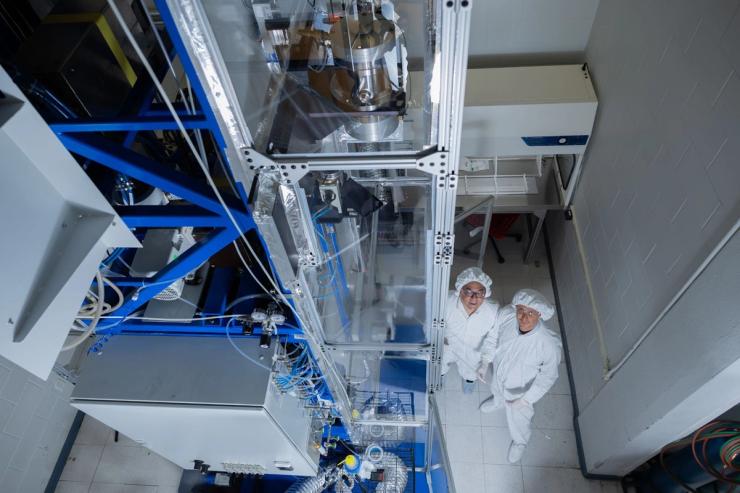The Scoop
Fiber optics haven’t been a hot technology in decades, but the AI arms race and breakthroughs in next-generation fiber have put the industry back in the spotlight.
Florida-based Relativity Networks produces hollow-core fiber cables — an optical fiber that moves light through an air-filled chamber rather than the traditional glass core — that can transport data 50% faster than the established method. The two-year-old startup raised an oversubscribed $6.1 million in seed funding, bringing its total amount to $10.7 million, the company exclusively told Semafor. The funding will go towards retrofitting a cable facility in the Netherlands to produce the hollow-core fiber, CEO Jason Eichenholz said.
Its main customer? Data centers.
The demand for data centers to power AI has tech companies searching for affordable and available land that is close enough to population hubs to avoid sacrificing latency. (Bonus points if it’s far enough away from neighborhoods to not bug the residents.) Much of that land has been bought up, but hollow-core fiber allows them to expand their parameters.
The speed at which data travels through these fiber cables means data centers can be placed 50% farther from residential areas without slowing down the transfer. As power becomes the central issue in data center buildout, the fiber additionally allows companies to access underutilized parts of the electric grid and deploy clean energy sources that are difficult to build out in populated areas, like solar panels. Access to more energy and space from urban centers could help get their facilities up and running faster so Big Tech can start reaping the benefits of their AI investments.
Relativity Networks has already laid 25 miles of fiber for one hyperscaler, Eichenholz said. The demand is “insatiable,” he added: “We’re talking to every hyperscaler except Microsoft,” which acquired a similar company in 2022.
Step Back
When Eichenholz started the company in 2023, customers wanted to find cheaper land. However, energy access has recently become their primary concern, he said.
“From those unprecedented energy demands came the need to explore alternative geographies, starting in places like [Virginia’s] Data Center Alley,” he said. “They need to go further out.”
Relativity Networks’ fiber costs “significantly more” than traditional cables, he said, “but the value is huge, and the cost of the fiber becomes a rounding error compared to what they’re doing to deploy a data center, or the value of being able to turn a data center on six months to a year earlier.”
Know More
Italian cable producer Prysmian, worth 18.6 billion euros ($21.9 billion), led the funding round, with participation from Florida-based Govo Venture Partners. Prysmian is providing Relativity Networks with part of its Netherlands facility and equipment — helping “take something from a laboratory and do it at an industrial scale,” said the company’s executive vice president of digital solutions Frederick Persson. Prysmian also makes the cables that encase Relativity Networks’ fiber.
“Fiber has a lot of competition from China, so it’s not always easy to see the future of the European industry,” Persson told Semafor. “Here, we are willing to bet on an American company to come up with something new. It motivates people internally and shows we are willing to [take a] risk when we believe it has a chance to succeed.”
Notable
- The market for next-generation fibers, which includes hollow-core fiber, is expected to reach $1 billion by 2031, up from $137 million in 2022, according to a 2023 report by BIS Research.


